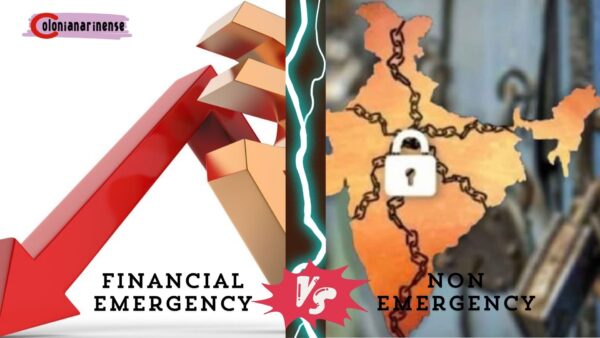When it comes to spending money, it typically falls into one of two categories: a financial emergency or a financial nonemergency. A financial emergency involves urgent, unexpected expenses that require immediate action, whereas a financial nonemergency includes planned or non-urgent expenditures that can be addressed over time. Understanding these distinctions is crucial for managing your finances effectively. If you want to dive deeper into what sets these two categories apart, keep reading as we break down the differences between financial emergencies and nonemergencies.
What Is a Financial Emergency?
A financial emergency is an unexpected event that requires immediate financial attention. These situations often arise suddenly, leaving you scrambling for funds you hadn’t planned to spend. Here are some common examples:
- Medical Emergencies: Health issues can arise without warning. An unexpected illness or accident can lead to significant medical bills. Without emergency savings, these costs can force difficult choices between healthcare and other essential needs.
- Job Loss: Losing a job can be a major financial setback, especially if it happens suddenly. Without a steady income, covering basic expenses like rent, bills, and groceries can become challenging, leading to further financial difficulties.
- Home Repairs: Essential home repairs, such as fixing a leaking roof or a broken heater, are urgent. Delaying these repairs can lead to more significant damage and higher costs, as well as potential health risks.
- Car Repairs: For many, a car is essential for commuting to work, shopping, and handling emergencies. A sudden breakdown can disrupt daily life and come with hefty repair bills, making it a significant financial emergency.
- Legal Issues: Unexpected legal problems, such as being sued or needing a lawyer, can be expensive and require quick access to funds.
- Urgent Travel: Emergencies may require you to travel at short notice, such as for a family crisis or sudden work trip. Last-minute travel can be costly, putting a strain on your finances if you don’t have savings set aside.
What Is a Financial Nonemergency?
A financial nonemergency, on the other hand, involves expenses that you can plan for. These are not urgent and do not require immediate financial action, allowing you to save and budget over time. Common examples include:
- Home Improvements: Projects like remodeling a kitchen, adding a room, or landscaping the garden enhance your home but aren’t urgent. You can plan these improvements when you have enough savings.
- Elective Medical Procedures: Some medical treatments, such as cosmetic surgery or vision correction, are non-urgent and can be scheduled at a convenient time. This allows you to research options and save up for the costs.
- Luxury Purchases: Buying the latest smartphone, trendy clothes, or accessories falls into the nonemergency category. These are wants rather than needs, and you can wait for sales or save gradually.
- Investments: Investing in stocks, real estate, or starting a business requires careful planning. It’s best to take time to research and consult experts before committing funds.
- Education and Learning: Enrolling in courses, workshops, or further education is valuable, but unless it’s time-sensitive, you can save and plan for these expenses.
- Gifts and Celebrations: While it’s great to give gifts and celebrate occasions, these events can often be planned in advance. Setting a budget and saving for these expenses can help you enjoy them without financial stress.
Key Differences Between Financial Emergencies and Nonemergencies
Understanding the key differences between financial emergencies and nonemergencies can help you manage your money more effectively:
- Urgency: Financial emergencies require immediate action, like addressing a health issue. Nonemergencies, such as home improvements, can be postponed until you are financially prepared.
- Consequences: Delaying action in an emergency can lead to serious consequences, such as health risks or further damage. Nonemergencies might be disappointing to delay but usually don’t have severe consequences.
- Planning: Emergencies are typically unforeseen, making it essential to have an emergency fund. Nonemergencies can be planned for, allowing you to save and budget accordingly.
- Duration of Impact: The financial impact of emergencies can be long-lasting if not handled promptly. In contrast, nonemergencies usually have a short-term financial impact, especially if managed well.
- Emotional Stress: Financial emergencies can be highly stressful due to their urgent nature and potential consequences. Nonemergencies generally cause less stress, as you have time to plan and prepare.
Quick Comparison Between Financial Emergencies and Nonemergencies
| Aspect | Financial Emergency | Financial Nonemergency |
|---|---|---|
| Definition | Sudden, unexpected, and urgent financial needs | Planned or routine expenses |
| Timing | Requires immediate attention | Can be budgeted over time |
| Nature of Expense | Unforeseen, e.g., medical emergencies | Regular or planned, e.g., vacations |
| Impact on Budget | Disrupts budget plans | Fits within the budget |
| Source of Funds | Emergency savings, loans | Regular income, savings |
| Planning | Difficult to plan in advance | Can be anticipated and saved for |
| Examples | Medical emergencies, job loss | Rent, groceries, education |
| Stress Level | High stress | Lower stress |
| Financial Planning | Highlights need for an emergency fund | Focuses on budgeting and long-term goals |
| Insurance Coverage | May or may not be covered | Typically not covered by insurance |
| Prevention | Hard to prevent, but savings help | Managed through regular budgeting |
Conclusion
By now, you should have a clearer understanding of what constitutes a financial emergency versus a nonemergency. While there are many possible scenarios, recognizing the most common examples can help you make informed financial decisions. Preparing for emergencies with a dedicated savings fund and planning for nonemergencies with thoughtful budgeting can go a long way in maintaining financial stability.




